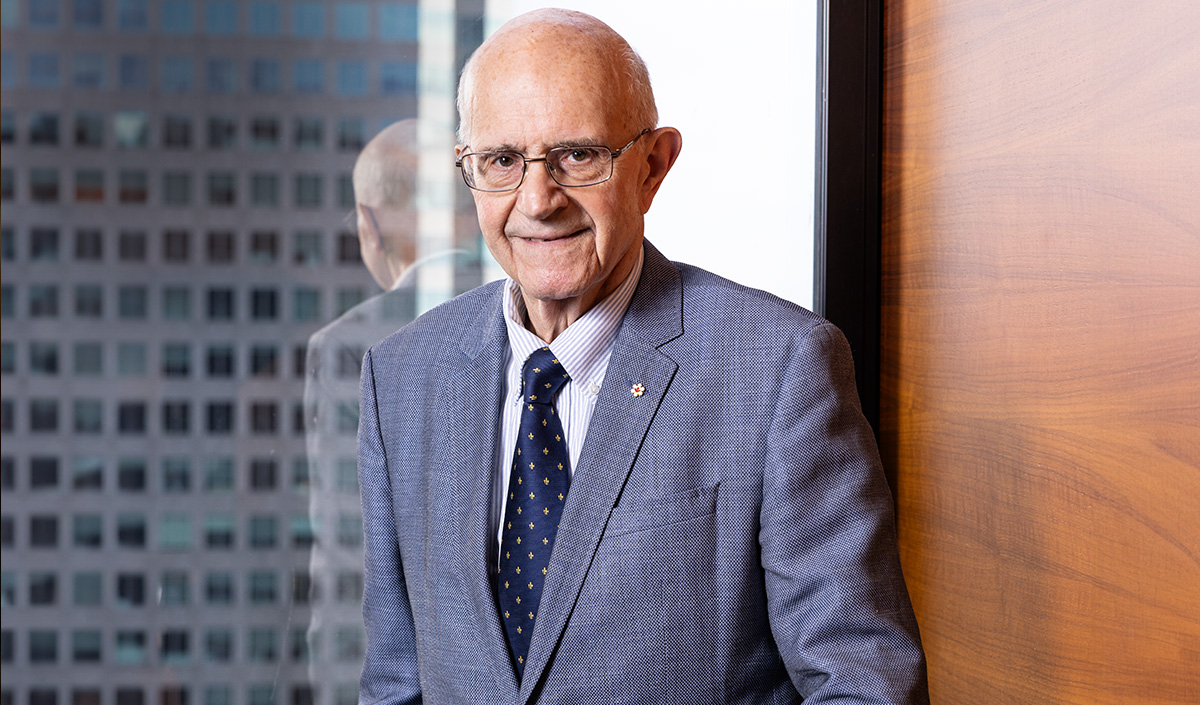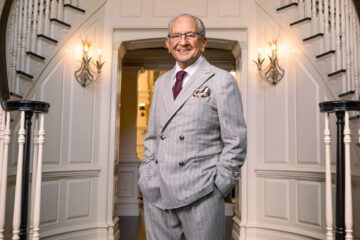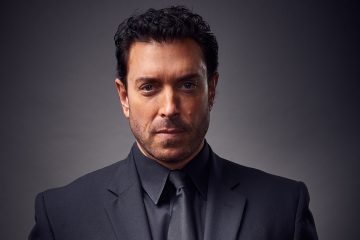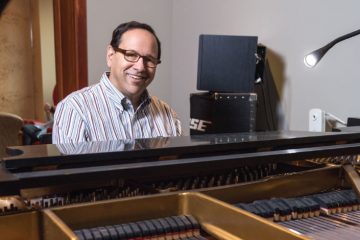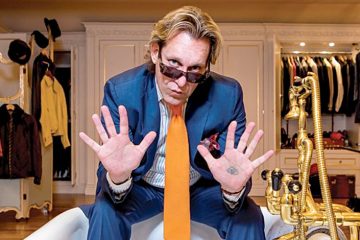Frank Iacobucci: From Humble Beginnings to Canada’s Supreme Court
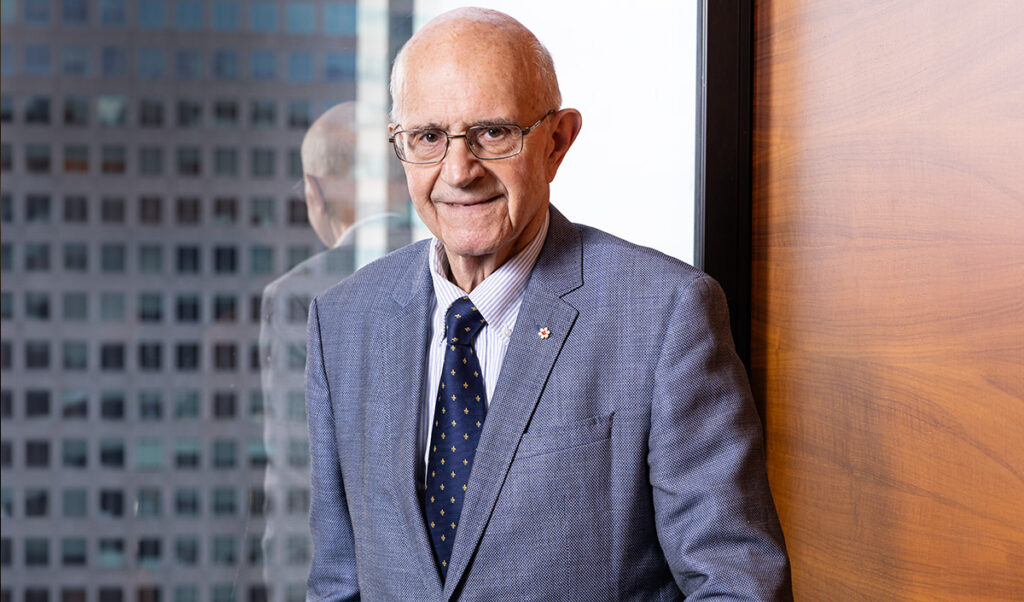
The eminent career of the Honourable Frank Iacobucci is one of hard work, humility and above all, family.
It is understood that most Italians who emigrated to Canada arrived in two waves: some came from 1900 to the First World War and others from 1950 to 1970, to escape from dire poverty (especially in southern regions of Italy) and join the labour force for Canadian factories and various branches of the nation’s infrastructure.
But the light at the end of the dark tunnel for an immigrant is the pursuit of opportunity. What was palpable for the waves of Italian immigrants to North America was an understanding that, although not having been welcomed with open arms upon their arrival, the blood, sweat and tears of their hard work and sacrifice would pave the road for a more promising future for their families.
For Frank Iacobucci’s working-class family, who immigrated to Vancouver, British Columbia, in the mid-1920s, just after the first big wave, three fundamental rules were set in stone from Day One, and the children were all expected to uphold them: “One, get an education, because that can’t be taken away from you. Two, work hard. Three, never bring shame to the family,” Iacobucci recalls.
Leading up to Dolce’s interview with the first Italian-Canadian allophone to be appointed to the Supreme Court of Canada, the nerves began to kick in, naturally. I grew up with a strong Italian upbringing and ties to the Italian-Canadian community, so Justice Iacobucci’s reputation had preceded him. But from the moment I introduced myself, he established an immediate feeling of comfort with the warmth of his smile, his modest personality and his eloquent storytelling.
Born in Vancouver in 1937, the third of four children, he recalls life being tough and full of challenges for his family because as they worked to establish a new life after the Great Depression Italy was gearing up to join the Germans in the Second World War.
“My parents were considered enemy aliens and, by extension, so was I, along with my siblings. Following that, my father lost his job at the airport. I remember reporting to the RCMP with my mother when I was about four or five years old. But having said that, although we were poor, we were happy. I had a childhood of many happy memories,” says Justice Iacobucci.
Iacobucci smiles easily as he recalls the chickens, goats and rabbits that frolicked in the backyard and the garden that his father regularly tended.
Overwhelming feelings of gratitude quickly take over as he shares that the most important lessons he was taught were not in school or university but were those three fundamental lessons he learned from his parents.
At 17, he was hired to work alongside his father in a steel foundry and, a despite there being a superintendent on the factory floor, it was his father who was his boss.
“It was a very tough job, and he was very hard on me. I have never seen anybody who worked as hard as my father,” says Justice Iacobucci.
Although he was also a hard worker, this experience with molten steel and scrap metal just confirmed the path he’d already chosen for himself as a little boy.
“When I was in Grade 3, I’d said ‘I want to work with my brain, not my body,’” Justice Iacobucci recalls.
Growing up, he would spend time with his older brother, who fuelled his eagerness to learn, with the result that he was much more knowledgeable than his elementary-school classmates. His time at the foundry served to reconfirm his childhood determination to pursue an education. The question is, how did the legal profession fall into his sights?
At his Grade 6 graduation ceremony, school principal Mr. Smith called Iacobucci to the stage. “Here’s Frank Iacobucci. A great talker. He could be the next Angelo Branca.”
Young Iacobucci was curious to know who that was. So, he went home that day and asked his father, thinking that Angelo Branca was an athlete or a celebrity of some kind. His father explained: “Un grande avvocato.” (Translation: A great lawyer.) “That was the seed that was planted in my mind about the law. Did I know anything about the law? Of course not. But that kept with me right through university,” says Justice Iacobucci.
Justice Iacobucci would go on to receive a Bachelor of Commerce degree in 1961 and a Bachelor of Laws degree in 1962, both from the University of British Columbia. He then earned his Master of Laws degree in 1964 and a diploma in International Law in 1966, both from the University of Cambridge in the U.K.
He met his wife, Nancy, a Harvard-educated lawyer, during his time at Cambridge, and they tied the knot and started their family in Toronto, where he joined the University of Toronto’s Faculty of Law and subsequently taught for 19 years. In 1985, Justice Iacobucci was appointed as Canada’s Deputy Minister of Justice and Deputy Attorney General. He was appointed Chief Justice of the Federal Court of Canada in 1988 and served as a Justice of the Supreme Court of Canada from 1991 to 2004. Justice Iacobucci most notably presided on the Reference re Secession of Quebec judgment in 1998.
Since leaving the court, Justice Iacobucci has worked tirelessly to strengthen the relationship between Canada and its Indigenous peoples.
“As Canadians, we need to confront our past, our history of mistreatment, abuse and just do what we can to improve the relationship. It’s the most important societal issue facing Canada,” says Justice Iacobucci. When asked what the one change he would like to see in the world is, he responds, “I want a world of peace and harmony. If there is a catastrophe or conflict, or even worse, a war, those of us not involved to help those who are involved.”
To describe Justice Iacobucci’s career as “distinguished” or “illustrious” understates his accomplishments, for those words do not fully reflect the character of the man whose career reached unprecedented heights from an unpredictable start. As I sat across from him and listened to him speak about his roots and his desire to help others, I can tell you he is a man who has lived a life that embodies the values of integrity, decency and compassion, and he has transmitted those values to his children and grandchildren.











































































